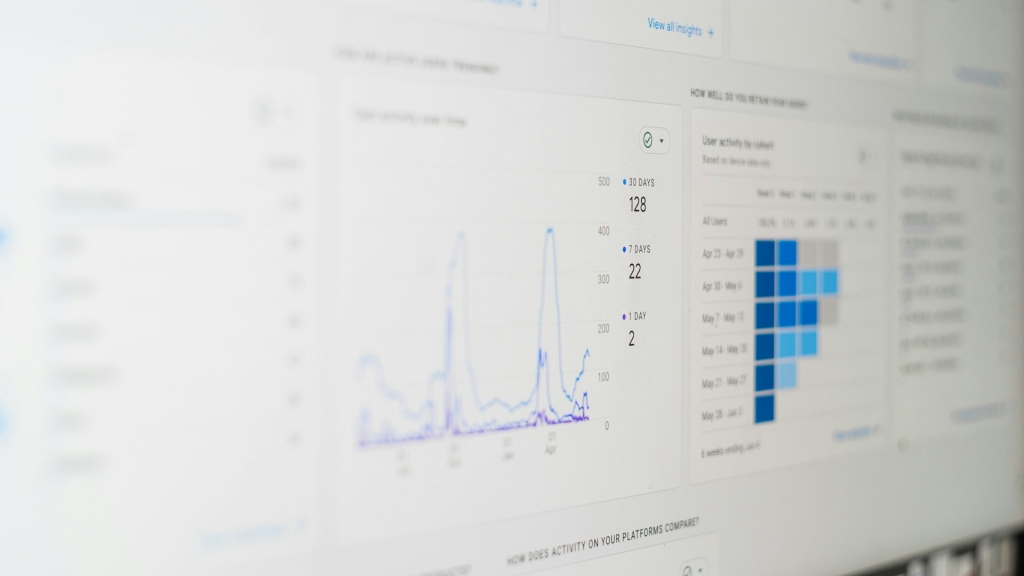Knowing and targeting your ideal customer profile, or ICP, is crucial. But, we see so many companies continuously creating content for the broader audience, and now narrowing it down to their ICP’s specific pain points. When you know exactly who you’re trying to reach, everything from your content to your sales conversations becomes more relevant and effective. In this article, we’re going to go through what an ICP is, and how to use it to guide your marketing and sales strategies.
What is an Ideal Customer Profile?
An Ideal Customer Profile is a detailed representation of the type of company that is the best possible fit for your services. It’s not about the customers you can serve, but the ones you should serve. In other words, those who gain the most value from your offering and contribute the most value back to your business.
For MSPs, this might be mid-sized healthcare practices that lack internal IT support, or regional law firms with growing cybersecurity and compliance needs. The goal is to define the attributes of a business that is the right size, in the right industry, with the right challenges and goals to truly benefit from working with you.
Your ICP focuses on company-level characteristics. While buyer personas describe the individuals making decisions, the ICP defines the broader business context they operate within.
Why Your ICP Matters
Too many MSPs fall into the trap of trying to be everything to everyone. While that may seem like a good way to attract more leads, it usually leads to wasted time, mismatched expectations, and clients who don’t stick around. Defining your ICP helps you focus on the types of customers you can genuinely help, and who will help grow your business in return.
When you clearly understand your ideal customer, you can:
- Tailor your messaging to speak directly to their challenges
- Prioritize leads that are more likely to convert
- Improve client retention by setting better-fit expectations
- Streamline your sales process and reduce friction
- Optimize your service delivery for a specific set of needs
It’s about working smarter, not harder, by aligning your entire go-to-market strategy with the prospects who are most likely to succeed with you.
 How to Build an Ideal Customer Profile
How to Build an Ideal Customer Profile
Creating an ICP isn’t a guessing game. It should be based on real data, real clients, and real performance insights. Start by analyzing your best existing customers, like the ones who renew, refer others, and are profitable without being a drain on resources. Look at what those companies have in common. Consider factors like industry, location, team size, annual revenue, growth stage, IT maturity, and pain points. Then think about the situational triggers that brought them to you. Did they experience a data breach? Were they scaling quickly? Did they recently lose their internal IT lead?
These commonalities form the foundation of your ICP. Once you’ve identified these patterns, document them. Write a clear, concise description of your ideal customer that your sales, marketing, and service teams can all understand and use. This shared understanding is what aligns your internal strategy with your external outreach.
Marketing Strategies Improved by Using an ICP
Now that you’re familiar with the basics of building your ICP, you’re probably wondering what strategies you can start to leverage. Here are the top marketing strategies that are improved by specifically targeting your ICP.
Content Marketing
Content marketing becomes significantly more effective when shaped by your ICP. Without one, your blogs, videos, and guides tend to speak broadly, making it hard to resonate with any particular audience. But when you know your ideal customer, say, regional healthcare clinics with 25-100 employees struggling with compliance, you can create content that directly addresses their unique concerns. A blog post like “How Community Clinics Can Simplify HIPAA Compliance Through Managed IT” is far more compelling to your target audience than a generic IT overview.
Paid Advertising
Paid advertising becomes more efficient when targeting is driven by your ICP. Running ads without clear criteria leads to wasted spend and unqualified leads. With an ICP in place, you can refine your ad targeting by job title, industry, location, company size, and even intent signals. For instance, if your ideal clients are small law firms in Toronto with fewer than 50 employees, you can launch LinkedIn ads that only appear to managing partners at legal firms within that exact region and size bracket, drastically increasing the relevance of your campaigns.
Email Marketing
Email marketing also benefits from ICP alignment. Instead of sending the same message to a broad subscriber list, you can segment your audience based on ICP characteristics and tailor your email copy accordingly. If your ICP includes retail businesses with frequent point-of-sale system issues, your email subject line might read “Struggling With POS Downtime? Here’s How MSPs Can Help Retailers Stay Online.” Relevance increases open rates, engagement, and conversion.
SEO and Website Messaging
SEO and overall website messaging become more precise and conversion-focused when rooted in your ICP. Rather than optimizing your homepage for broad keywords like “IT services,” you can target more specific terms like “managed IT for dental offices” or “MSP for retail franchises.” This specificity not only boosts your SEO performance but ensures that when the right prospect visits your site, the messaging speaks directly to their needs.
 Sales Strategies Improved by Using an ICP
Sales Strategies Improved by Using an ICP
Next up, we have our list of the top sales strategies that are improved by a targeted approach.
Lead Qualification
Lead Qualification improves drastically with an ICP. Without one, sales reps may spend time on any lead that shows interest, regardless of fit. With a defined ICP, you can score leads based on how well they align with your ideal customer traits. If a prospect fits your ICP, they’re prioritized. Leads outside your ICP can be routed differently or deprioritized, saving your team time and reducing the risk of onboarding bad-fit clients.
Sales Messaging
A one-size-fits-all sales pitch often falls flat because it doesn’t address the buyer’s specific concerns. When your reps know your ICP, they can tailor their approach to speak to the exact pain points and goals of that type of customer. For example, if your ICP includes financial services firms concerned with data privacy, your reps can open the conversation with recent industry breach examples and position your cybersecurity solutions accordingly.
Sales Enablement Materials
Sales Enablement Materials are more impactful when built with the ICP in mind. Instead of creating generalized case studies or one-pagers, your team can use assets that speak directly to the industries and challenges your ideal customers face. If your ICP includes veterinary clinics, your sales deck might include a client success story showing how you helped a chain of clinics reduce downtime and streamline appointment scheduling with cloud-based IT support.
Pipeline Forecasting
Pipeline Forecasting becomes more accurate with ICP-driven deals. When your sales pipeline is filled with prospects who closely match your ICP, the chances of closing deals go up, and so does predictability. This makes it easier for your leadership team to forecast revenue, allocate resources, and scale more confidently.
 Aligning Your Entire Organization Around the ICP
Aligning Your Entire Organization Around the ICP
Your ICP isn’t just a tool for marketing and sales. It should inform every part of your organization, from product development to customer support. When your service team knows your ideal customer’s common pain points, they can proactively deliver value and increase satisfaction. When leadership understands who you’re targeting, they can allocate resources more effectively. As everyone is aligned around the same definition of success, growth becomes much more sustainable.
What’s Next?
If you don’t have a defined ICP today, start building one using the customers you already know and trust. If you have one, take time to validate it against your most recent wins and losses.
Ask your team: Are we attracting the right leads? Are we closing deals we can confidently support? Are we building repeatable success with a specific segment?
Once your ICP is defined and aligned internally, your marketing and sales execution will follow with more precision. Campaigns will perform better. Conversations will be more relevant. And your business will grow with the right customers.
IN2communications is a Managed Marketing Agency specializing in full-funnel marketing strategies including website development, content creation, lead generation, and ROI analytics.



